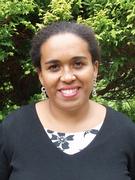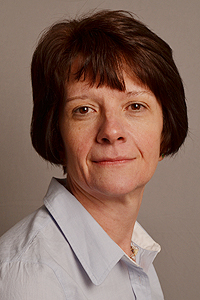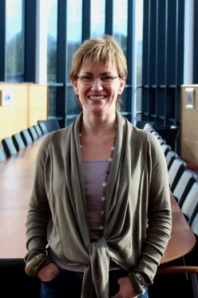UAGBV Members
Below is a list of key members of the network, with their research interests. This information is still being compiled, so more biographies will be added soon.
| Dr Rachel Fenton
|
Dr Rachel Fenton sits on the Bristol Women’s Commission Taskgroup on Women’s Safety and UWE’s forum against sexual violence. She is the Principal Investigator for The Intervention Initiative, an evidence-based bystander programme for the prevention of sexual and domestic violence in University settings commissioned by Public Health England. The accompanying rapid evidence review on bystander intervention is published by Public Health England. Rachel has also led the first controlled evaluation of The Intervention Initiative. A senior lecturer in law at UWE, Rachel has a long-standing research interest in issues of gender and sexual offences. She is co-editor of Gender, Sexualities and Law (2011) and is currently writing a monograph for Routledge entitled Vulnerability, Violence Against Women and University Contexts. |
| Professor Renate Klein
|
Renate Klein is Professor in the Faculty of Social Sciences and Humanities at London Metropolitan University in England and adjunct associate professor of Human Development & Family Studies at the University of Maine, USA. She trained in social psychology at the University of Marburg, Germany, and focused initially on person perception, social cognition, and interpersonal relationships. For the past two decades, she has worked in research, teaching and program development on topics related to gender and violence. At the moment she is interested in three broad areas: non-specialist responses to violence against women, including from family and friends and from universities and colleges; the role of digital literacy in abuse prevention; and the role of language and translation in framing gendered abuses. |
| Dr Ruth Lewis
|
Dr Ruth Lewis is Senior Lecturer in Social Sciences, University of Northumbria, Newcastle upon tyne. Ruth’s career spans academia, the public sector and the third sector. Her research has focused on violence against women, (particularly, legal interventions, domestic violence, perpetrators programmes, and lethal violence). Her current research interests focus on feminist activism in response to a range of issues, including violence against women students. Alongside her academic career, Ruth has been involved in community activism about violence against women and she is energised and inspired by the resurgence of feminist action on this issue. She has also worked outside academia – in the voluntary sector (doing work on gender equality regional policy and development at the Women’s Sports Foundation) and public sector (doing ‘value for money’ audits of national government initiatives at the National Audit Office) and has enjoyed the variety of encounters, skills and learning these experiences have offered. |
| Dr Alison Phipps
|
Dr Alison Phipps is Director of Gender Studies at Sussex University and is primarily interested in the politics of the body, in particular as they play out around issues to do with gender and health. Her work constructs a political sociology of issues including sexual violence, childbirth, breastfeeding, abortion and sex work, focusing on the discursive power of the current Western neoliberal/neoconservative political coalition and how this has produced a marketisation of issues of autonomy and choice, a left-wing moral ambivalence and an individualisation of dissent and critique. Alison worked with the NUS on their 2010 ‘Hidden Marks’ report on violence against women students, and co-authored the 2013 ‘lad culture’ report ‘That’s What She Said’, with Isabel Young. She sits on the Brighton & Hove City Council Violence Against Women and Girls Programme Board and the NUS national strategy team on ‘lad culture’. Alison was Chair of the Feminist and Women’s Studies Association, 2009-2012. |
| Dr Sundari Anitha
|
Dr Sundari Anitha is Senior Lecturer in Criminology at the University of Lincoln. Her research interests lie in two areas (i) the problem of violence against women in the UK and India; the politics of intersectionality and the connections between violence within homes and outside (‘race’, ethnicity, class, gender, and migration); particular forms of VAW such as forced marriage and transnational abandonment of wives, and prevention education on gender-based violence. (ii) Linked to this research is her ongoing interest in migration, ‘race’, ethnicity, gender and working lives among the South Asian diasporas in the UK; and organisation of migrant women workers. She is currently leading a university-wide prevention education project at the University of Lincoln in partnership with Scottish Women’s Aid, White Ribbon Campaign and Tender. This includes a peer education programme with student volunteers, theatrical performances by drama students and a student-designed poster campaign. She has previously managed a Women’s Aid refuge and was a Case Worker for Asha Projects, a specialist refuge for survivors of domestic violence, of which she is a trustee now. |
| Dr Anne Chappell
|
Dr Anne Chappell is part of a European team working on a project entitled “Universities Supporting Victims of Sexual Violence: Training for Sustainable Student Services (USVSV)”. The project will map how universities currently respond to sexual violence reviewing policies and care pathways, and identifying best practice in supporting staff to offer a ‘first response’. It will develop a model ‘training’ programme for university staff in each of 12 Partner universities, establishing links between local victim services and sharing learning across these and wider networks. |
| Dr Catherine Donovan
|
Dr Catherine Donovan is the lead of the Emerald Project Team which includes Dr Nicola Roberts, Kate Tudor (University of Sunderland) and Matt Durey (Northumbria University). This Project is developing a survey tool for use in HE institutions that collects data on victimisation and perpetration of a range of violence and abuse (including domestic and sexual violence, hate and bullying more generally) and help-seeking. |
| Dr Marian Duggan
|
Dr Marian Duggan‘s research focuses on gender and sexuality victimisation and violence, with a particular focus on prevention. She also teaches in these areas. She has been focusing her efforts over the past year to addressing these issues at her University. So far, this has resulted in assisting with the development of policies and guidance; providing information for staff and students; harmonising University services; increasing awareness of local and national specialist organisations; piloting a bystander awareness module with students; designing an information leaflet; formulating a staff/student activist group (‘SexualRespect@Kent’) to implement changes at a grass-roots level; and building an external website with ‘SexualRespect@Kent’ information. |
| Sevinç Eryılmaz
|
Sevinç Eryılmaz holds BA Degree in Political Science and International Relations from Boğaziçi University and MA Degree in Political Science and International Relations from Yıldız Technical University. Her MA thesis is on international migration and citizenship. She is a PhD Candidate at Political Science Department of Istanbul Bilgi University. She has been working at the Human Rights Law Research Center since 2001. She coordinated the project entitled “Strengthening Respect for the Human Rights of Women in Turkey” between 2005 and 2011. She is among the editors of the book titled “Women’s Rights: International Law and Practice” [published in Turkish] and among the writers of the book titled “’Who’ and ‘What’ is Protected by the Law on the Protection of Family? Narratives of Judges, Prosecutors and Lawyers” [published in Turkish]. Within the framework of the project titled “Women’s Collaboration for Gender Justice” implemented in cooperation with Mor Çatı Women’s Shelter Foundation, she edited a book titled “Why is It Difficult To Reach Data on Male Violence?” [published in Turkish]. She took part in the preparation of various reports and some awareness raising activities as a short-term expert in the project titled “Technical Assistance for Prevention of Domestic Violence in Turkey” where the General Command of Gendarmerie is the Beneficiary. Research interests: gender, women’s human rights, violence against women, non-discrimination, international migration and citizenship. She is currently also working on the website of Istanbul Bilgi University, Unit for the Prevention of Sexual Harassment and Assault. |
| Mónica Moreno Figueroa
|
Mónica Moreno Figueroa‘s work is mainly on the everyday quality of racism. She is interested in how to report and deal with institutional racism as many cases have come to her attention, however, recent cases of sexual assault at the university have raised similar issues and she has decided to develop this research which will serve both purposes. Mónica has been invited to be part of a Horizon 2020 EC project called ChainReact who aims to develop an app called “The Whistle” to report human rights violations. |
| Professor Bonnie Fisher
|
Bonnie Fisher is Professor in the School of Criminal Justice, University of Cincinnati, with an affiliate faculty appointment in the Department of Women’s, Gender and Sexuality Studies. During her career, Professor Fisher has been the PI or Co-PI on the National College Women Sexual Victimization Study, the National Violence Against College Women Study and a national study that examined the responses of colleges and universities to the report of a sexual assault. She also has been a consultant on several other victimization projects, including the College Sexual Assault and Green Dot Across the Bluegrass studies. She is currently working for the White House, Violence Against Women Office, Bureau of Justice Statistics, Research Triangle Institute to develop the questions and methods for a campus climate survey to be implemented by all Title IX schools in 2016. She has co-edited and coauthored a number of books, including The Dark Side of the Ivory Tower: Campus Crime as a Social Problem (Cambridge University Press), Unsafe in the Ivory Tower: The Sexual Victimization of College Women and Campus Crime: Legal, Social and Policy Perspectives, 3rd edition (Charles Thomas Publisher). |
| Bill Flack, Associate Professor
|
Bill Flack is a critical clinical psychologist, and the focus of his research is survey-based measurement of sexual violence and the factors that promote it among university students. He is a member of the Administrator-Researcher Campus Climate Consortium (ARC3), which has developed a psychometrically sound, modular survey of sexual victimization and perpetration among university students. |
| Dr Nikki Godden-Rasul
|
Dr Nikki Godden-Rasul involved in a project with a colleague on what institutions can and should do to respond to sexual violence on campus, from a legal perspective. This follows a half-day workshop she co-organised at Newcastle University in March 2016, on ‘Campus Feminisms: Gender and Social Justice in Higher Education’. More broadly, more research interests are in rape law and policy, restorative justice and sexual violence, tort law and gender, feminist legal theory, and criminal justice and gender. |
| Dr Clare Gunby
|
Dr Clare Gunby is currently a lecturer in Criminology at the University of Leicester where her research interests include gender-based violence and women’s experiences of the criminal justice process: she has published widely on these topics. Clare’s mixed-methods PhD was one of the first UK examinations of students’ experiences of alcohol-related non-consensual sex and the prosecution of such cases in court. After her PhD Clare worked as a Research Associate at Keele University on the EU funded project ‘Gender-based Violence, Fear of Crime and Stalking’ – Europe’s first multi-site investigation into students’ experiences of gender-based violence. Currently, Clare jointly holds grants from Nottinghamshire Police and Crime Commissioner and the British Academy. In relation to the former, she is involved in evaluating the impact of a provision aimed at responding to repeat female victims of medium risk domestic abuse. Her British Academy grant is supporting a project examining the workings of the sexual Offences Act 2003 in four cities. In conjunction with colleagues at Leicester she has helped to set up a critical gender network as well as working with Liverpool City Council in the development and evaluation of a number of campaigns aimed at raising awareness/challenging attitudes around alcohol-involved sex crime in the Night Time Economy. |
| Sarah Hilder, Senior Lecturer
|
Sarah Hilder is a Senior Lecturer in the Community and Criminal Justice Division at De Montfort University, Leicester. Her research and teaching focusses on working with victims, domestic abuse, issues of social justice, sex offender rehabilitation, supervision and surveillance. Sarah has published work on risk assessment, safety planning and perpetrator interventions in situations of domestic abuse, multi-agency working, desistance work with sexual offenders and EU cross border information exchanges on serious violent or sexual offenders. She is well versed in comparative victim and criminal justice work across the European Union (EU) having worked as a senior researcher on two major EU funded projects from 2010-2015. She is also co-founder of the Sexual Violence/Domestic Violence Research Network at DMU. Her full biography and list of publications can be accessed via : http://www.dmu.ac.uk/about-dmu/academic-staff/health-and-life-sciences/sarah-hilder/sarah-hilder.aspx Sarah Hilder can be contacted via email at shilder@dmu.ac.uk |
| Professor Carolyn Jackson
|
Carolyn Jackson is Professor of Gender and Education in the Department of Educational Research, Lancaster University, UK, where she is also Co-Director of the Centre for Social Justice and Wellbeing in Education. She has researched and published on numerous gender and education issues, including fear; constructions and performances of ‘laddish’ masculinities and femininities; and what are commonly termed single-sex and mixed-sex learning environments. Her work on ‘laddism’ or ‘lad cultures’ spans secondary school and higher education contexts. She is currently undertaking an SRHE-funded project (with Vanita Sundaram, University of York, UK) entitled ‘Are “lad cultures” a problem in higher education? Exploring the perspectives and responses of HEI staff’. Her books include ‘Lads and Ladettes in School: Gender and a fear of failure’ and ‘Girls and Education 3-16’ (co-edited with Carrie Paechter and Emma Renold). |
| Dr Jill LeBihan
|
Dr Jill LeBihan is Head of Student Engagement for Sheffield Hallam University. Her role is to ensure students are able to make the most of their whole university experience. To this end, she is interested in how to engage students actively in bringing about political and social change, and as a committed feminist, she is particularly interested in the gendered dimension to improving the student experience. |
| Professor Clare McGlynn
|
Clare McGlynn is a Professor of Law at Durham University specialising in laws relating to violence against women. She has worked closely with policy-makers, campaign groups and government to introduce new laws criminalising extreme pornography and image-based sexual abuse (‘revenge pornography’) and is co-editor ‘Rethinking Rape Law: international and comparative perspectives’ and ‘Feminist Judgments: from theory to practice’. She is currently a member of Durham University’s governing body, the University Council, and a member of the University’s Taskforce on Sexual Violence. |
| Professor Lesley McMillan
|
Professor Lesley McMillan holds degrees from the Universities of Glasgow, Edinburgh and Stirling. She is currently Professor of Criminology and Sociology and Theme Lead for Violence, Crime and Justice in the Institute for Society and Social Justice Research at Glasgow Caledonian University, and Associate Director of the Centre for Research in Families and Relationships at the University of Edinburgh. Professor McMillan previously held posts at the University of Sussex where she was Director of Gender Studies. Professor McMillan has published widely on rape, sexual assault and the criminal justice system with a particular focus on policing of sexual crime. She also conducts research on policing initiatives aimed at preventing youth crime and antisocial behavior, police training and procedural justice, victimization, forensic medical intervention, sexual exploitation, and missing persons. Professor McMillan is a founder member of the Comparative Analysis in Rape Research Network (CAiRRN); a group of international scholars seeking to develop comparative research on rape and criminal justice. She has held grants from key state and charitable funders such as the Economic and Social Research Council (ESRC), the Scottish Government, and the Scottish Institute for Policing Research (SIPR), Rape Crisis and police forces. |
| Dr Trishima Mitra-Kahn
|
Dr Trishima Mitra-Kahn, currently an Executive Committee member of the Feminist and Women’s Studies Association (UK & Ireland) is Policy Officer at the Australian Women Against Violence Alliance (AWAVA), one of six federal alliances funded by the Australian Government. She has worked on a number of projects on violence against women, most recently as Postdoctoral Associate at the Centre for Criminological Research at Keele University where she researched campus based sexual violence. Her research draws upon anthropological, criminological,and statistical methods whilst analysing different forms of gendered victimization. She is particularly interested in sexual harassment issues in urban India (including activism on the issue), sexual violence in higher education institutions, and Early and Forced Marriages (including British criminal and civil justice responses). |
| Dr Helen Mott
|
Dr Helen Mott is the research fellow for the University of the West of England’s Intervention Initiative. This project was commissioned by Public Health England to provide a suite of resources for English universities to use a bystander intervention model for the prevention of domestic and sexual violence in student populations. Helen is a feminist activist and campaigner with particular interests in creating social change and in addressing violence against women and girls. Based in Bristol, she has co-ordinated the feminist campaign group Bristol Fawcett since 2001 alongside working as a consultant in gender equality policy and strategy in the public sector. Her academic background is in the social psychology of gender and her interests include how sexism operates in society with reference to sexual harassment, sexual violence and sexual objectification. She has an enduring interest in the intersections between activism and academia and is extremely happy to be blending both in her current role helping to develop, evaluate and promote The Intervention Initiative. |
| Milena Popova
|
Milena Popova is a PhD Researcher at the Digital Cultures Research Centre, UWE Bristol. Her research focuses on representations of sexual consent in erotic fanfiction as a form of cultural activism. |
| Dr Elizabeth Sharp
|
Dr Elizabeth Sharp is an Associate Professor of Human Development and Family Studies and an affiliate faculty member of Women’s Studies, and Chair of the President’s Council on Gender Equity at Texas Tech University, USA. Focusing on femininity, romance, and familial ideologies, she has published broadly in the fields of Human Development and Family Studies, Sociology, Psychology, and Family Therapy. Recently, she has brought her work in the social sciences into dialogue with that of scholars in the arts and humanities and is currently working on a transdisciplinary project with choreographers and professional dancers and actors. Her work has been cited in several media outlets, including the New York Times, the Toronto Star, and Women Forbes. |
| Dr Bernadetta Siara
|
Dr Bernadetta Siara is a lecturer in sociology and research methods at the University Campus Suffolk in Ipswich, Suffolk. Her research has so far focused on gender, and gender-based violence is one of the fields she is particularly interested in. |
| Dr Vanita Sundaram | Dr Vanita Sundaram is Senior Lecturer in Education in the Department of Education, University of York. Her work centers on key and current issues in education, including teenage relationship violence and school-based intervention, embedding issues of gender, sexuality and diversity into sex and relationships education; lad culture and laddism in higher education; and teaching more broadly about gender and sexualities equality in schools. Recent publications include Preventing Youth Violence: Rethinking the Role of Gender in Schools (Palgrave). |





















You must be logged in to post a comment.